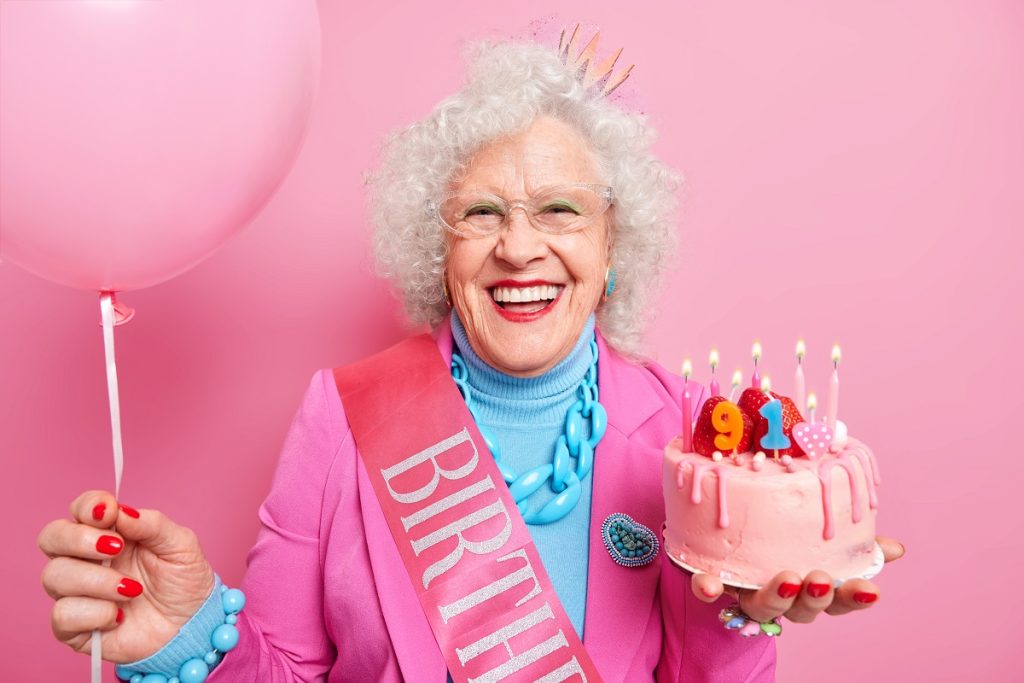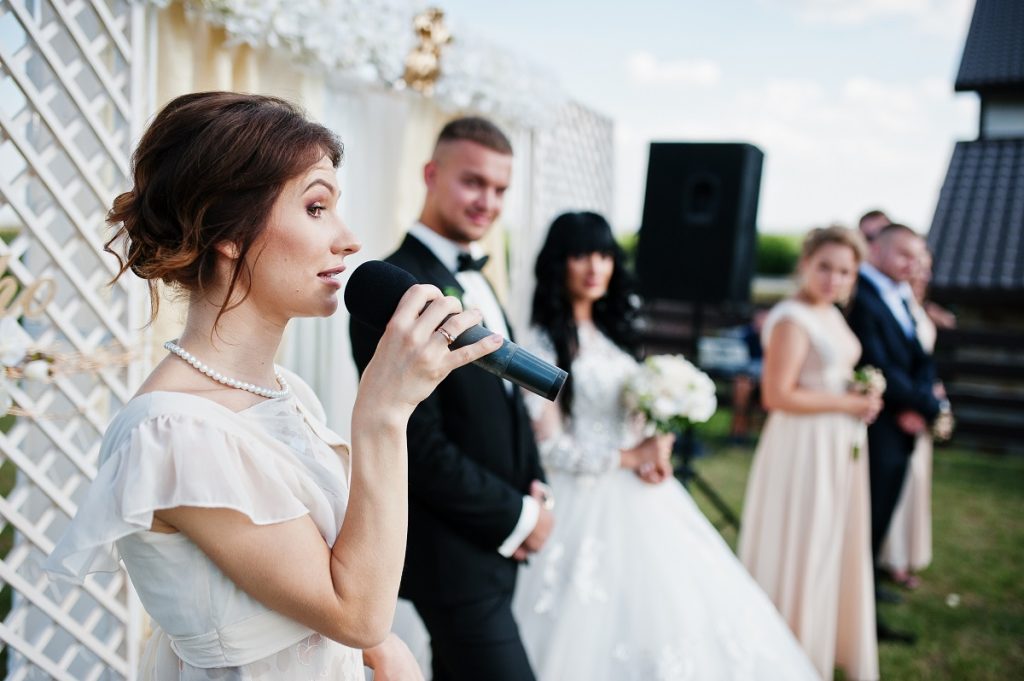Special occasion speeches are given for occasions such as birthdays, funerals, graduation, wedding, retirements, and more. Many times the event dictates the proper special occasion speech topics. Anyone can benefit from learning the techniques of giving a special occasion speech as they may likely have to give one.
Do you think of yourself as a public speaker? Even if you don’t, sometime, somewhere, you’ll be called upon to say a few words in honor of a friend or occasion. What’s important with a special occasion speech is that you speak from the heart, first and foremost.
When formulating this speech, special occasion speech topics will be obvious. Let us help identify the different types of event speeches, explain when and where they might occur, and dive into how to create them so that you leave the guests hanging on your words.
What Are Special Occasion Speeches?
Special occasion speeches are what the name implies: speeches to commemorate a special occasion. These events range from personal events like birthdays and weddings, which are personal events, to public events like the celebration of a holiday or the opening of a park.
The most significant difference between each special occasion speech is the event that is being celebrated as well as the target audience.
Understanding the importance of each occasion will help you to tailor your speech to fit the specific event.

What Are 12 Types Of Special Occasion Speeches?
There are many ways of categorizing special occasion speeches, but the 12 below are common ways of doing so.
1. Speech of Introduction
If you are tasked with giving the speech of introduction, you are not the main event. This speech talks about the upcoming speaker so that those assembled know what is to come. It might present the person’s achievements, education, or other things.
2. Presentation Speech
At an awards ceremony, a preliminary speaker will discuss the award to be given and the honoree chosen. The presentation speech might be as short as announcing the winner or up to five minutes praising the recipient.
3. Acceptance Speech
After someone wins an award, contest, or election, their response is an acceptance speech that thanks supporters, opponents, and those influential in winning the award. They may discuss why the award is meaningful to them.
Some events, such as the Oscars, might include all three of the above speeches.

4. Dedication Speech
A dedication speech is given to commemorate an event, such as the opening of the new wing of a hospital, a new building, a park, or public art. Often, the building or whatever is named for an honored individual who may be the donor or a member of the community.
Such speeches often highlight the donor, the breadth of the project, and the importance of the facility, art installation, or memorial that will benefit the community.
5. Acceptance Speech
When someone is to receive recognition at an awards ceremony, they respond with a speech of acceptance. The thrust of the message is to thank those who gave the award and the team of family, friends, and colleagues who helped them earn it.
6. Commencement Speech
Ceremonial speeches are common at notable events, such as commencement.
Graduation speeches mark high school or college graduation ceremonies. Typically, the valedictorian and salutatorian, the top two academic achievers, say a few motivating words to the class, reminisce about the class, and thank the school and the teachers.
Sometimes, a local dignitary or other prominent visitor gives a commemorative speech to mark the occasion.
The speech is considered motivational or inspirational.

7. Eulogy Speech
The eulogy is given at a person’s funeral as the speaker highlights the deceased person’s life. However, other types of speeches are given after someone has passed away. As people get together to say goodbye to a loved one, they might do so in a celebration of life or memorial service rather than a funeral. Such speeches might be more informal.
8. Farewell Speech
When people gather to say goodbye to someone who is moving or retiring, the person leaving might give a farewell speech. This type of speech is usually informal and requires less preparation.
The tone is light. Even someone who hated their boss or a cranky neighbor should not use the farewell speech as a forum to complain about them.
9. Goodwill Speech
In a goodwill speech, the speaker introduces themselves to a group to build a relationship while doing the introduction. Foreign leaders often give this type of speech when visiting other countries. Business leaders new to their position might give this type of speech to employees. This type of speech is sometimes called a public relations speech.
One famous speech of this type was John F. Kennedy’s famous “Ich bin ein Berliner” (I am a Berliner) speech in Germany in 1963.
Another type of goodwill speech attempts to justify a position. In 1993, Bill Clinton justified his decision to bomb Iraq in a famous speech intended to build support on the world stage after an Iraqi plot to assassinate former president H.W. Bush.
A third speed of this type issues an apology. Tiger Woods gave a speech of this type after his pattern of affairs came to light. The sincerity of such discourses is often questionable if the speaker does not appear remorseful enough in the eyes of the public.
9. Roasts
During a roast speech, friends of the person being roasted tell humorous stories and anecdotes. It is called a roast because the person might feel the temperature rise (figuratively or literally) as they become uncomfortable with some embarrassing stories being shared.
A good roast includes both praise and good-natured insults to a person being honored. This type of speech might be part of a farewell or birthday speech, but it can also be used in other contexts as well.
President Obama’s speech to the National Press Corps is a humorous but scathing commentary on his presidency and politics.
10. Toast Speech
During special occasions, it is common for someone to raise a glass to the guest’s honor, which is a toast speech. Sometimes they are brief and spontaneous, but oftentimes, toasts are expected and planned. Examples of prepared toast speeches are those offered by the best man, maid of honor, or others at a wedding.
Sometimes, toasts are given as part of a more extended tribute.

11. Tribute Speech
When you pay honor or homage to an individual, that is a tribute speech. This can happen as part of a retirement speech, at a birthday party, or for other reasons.
12. Wedding Speeches
Wedding speeches are a popular type of tribute speech given by the father of the bride, best man, and maid of honor. Most of these speeches thank people for coming, share stories about the newlyweds, and wish them well. The bride and groom may ever give speeches.
Sometimes these speeches are technically toasts or end in one. When parents and attendants offer a toast, it is to the couple. The wedding couple might toast their new mate.

How to Choose Appropriate Special Occasion Speech Topics For The Various Speeches?
The speech’s content depends on the circumstances and context of the speech. A memorial speech should have a very different tone than one given at a birthday party. A birthday speech delivered at work would be more restrained that one delivered in a bar by a close friend. Likewise, a college student preparing a commencement speech would frame it differently than someone speaking at a building dedication.
Whenever you give a speech, it is important to consider some basic things:
- Audience: Who will be listening to the speech? Based on the occasion and audience, you can decide if you can give an entertaining speech or if it should be more serious.
- Honored Person: Often, someone is honored on a special occasion when a speech is given. Think about that person as you prepare your speech. The last thing you want to do is make someone uncomfortable on their special day of celebration. If he or she is a very private person, don’t tell stories they would not share with a large audience, no matter how amusing you think the story is.
- Intent: What is your intent for the speech? Are you one of many speaking, or is it just you? This can help you hone in on the best topics of focus. If it is a retirement party and there is a small group of people all speaking, it might be best to keep your words short. When all speakers share many of the same experiences, it is best to communicate with one another to avoid repetition.
- Occasion: When preparing for a speech, examine the particular event where you are going to be speaking, which will help you decide how to approach the speech.
Why Is Knowing How To Give A Special Occasion Speech A Good Skill To Have?
You may never have to give a keynote address or speak at a building dedicated, but most people have to give a special occasion speech at least once in their lifetime, perhaps more. A list of special occasion speeches many people will have to give at some point in their life includes a wedding speech, retirement speech, or commemorative speech for a special event such as a milestone birthday or award, among others.
Don’t worry too much about your speech. Just remember basic tips for speech giving, such as making an outline, choosing a few main points to focus on, creating clean transitions to link the major ideas, using a story or anecdote to pull the audience in, and leaving the audience with a powerful statement to wrap it up. And once you have your speech put together, don’t forget to practice.
Examples of Special Occasion Speeches
Still a bit lost and hoping for special occasion speech ideas?
Lou Gehrig’s Luckiest Man Alive Farewell Speech
Coach Jimmy Valvano’s Acceptance Speech at the 1993 ESPY Awards
Michael Jordan’s Celebration of Life Speech Honoring Kobe and Gianna Bryant

